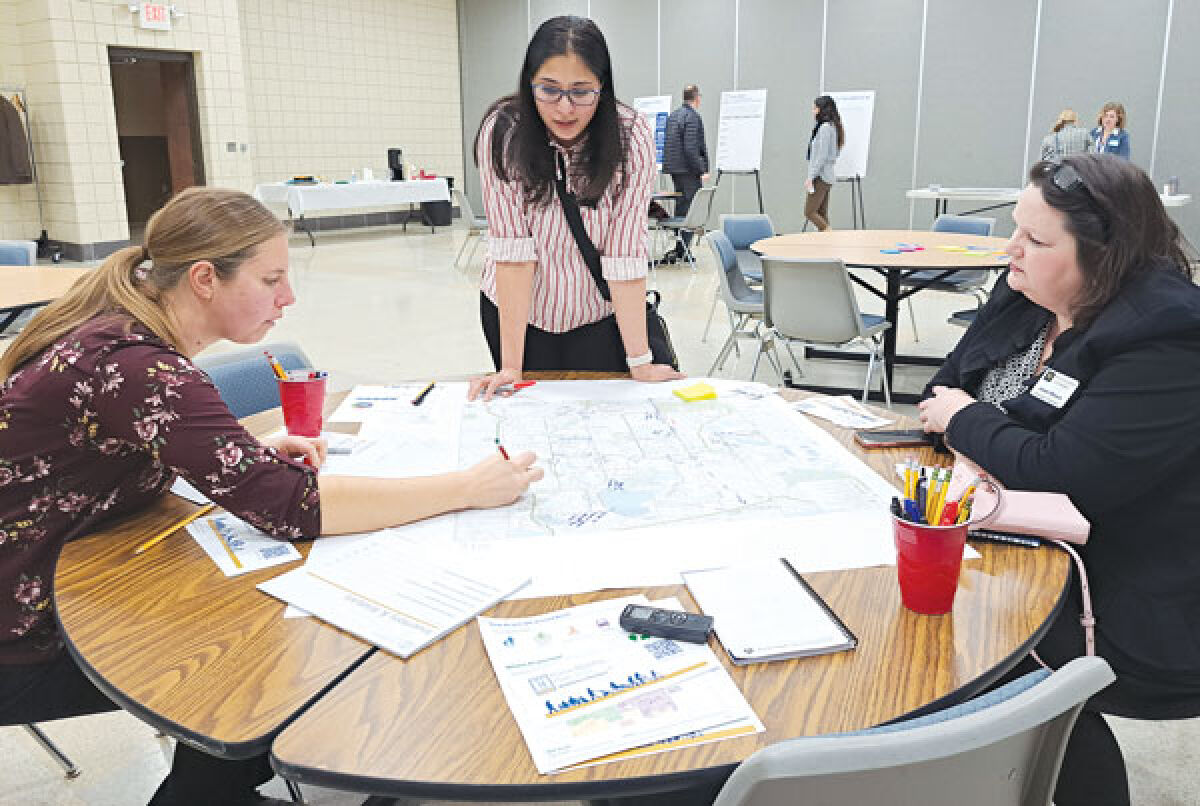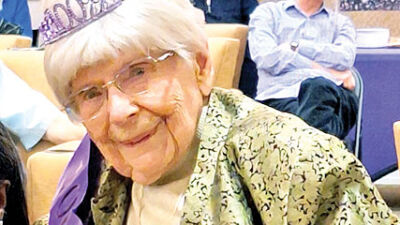NOVI — The Novi City Council narrowly approved the city’s 2023 Active Mobility Plan during its regular meeting March 18.
The plan is an updated version of the non-motorized master plan that the city adopted in 2011 and shows the system of pathways, sidewalks and other means that allow for non-motorized transit. The plan also encourages residents to have a healthy and active lifestyle.
Due to the original plan, the city was able to implement a total of 16.25 miles of trails and sidewalks between 2011 and 2022. In November 2022, the City Council contracted with The Greenway Collaborative to update its plan for non-motorized transportation. The company began a lengthy process that included gathering feedback from residents to find out what they felt was needed.
“This was driven by the public input, and that kind of developed the theme that you saw throughout the plan, and this plan would not be here without their input,” said Norm Cox, of The Greenway Collaborative.
According to Cox, there are three main components that the city will be working on for the foreseeable future: a neighborhood greenway network, connecting to transit, and improved access to shopping and dining.
“Think of this as a family-friendly network. It will connect the key destinations in the city. It is really a strategic building upon your existing pathway systems,” said Cox.
Cox said that now that the city has public bus services provided by the Suburban Mobility Authority for Regional Transportation, it needs to work to update the areas around the bus stops to make sure there is an adequate area for those waiting for the bus and a safe path for them to walk home or to various areas in the city.
“I would personally like to see a lot of the gaps completed before we start doing anything else,” Councilman Dave Staudt said.
Staudt, who has been a council member for many years, said that he is opposed to putting sidewalks in areas where it was determined long ago not to put them and gave the example of Nine Mile Road between Haggerty and Meadowbrook roads. He said that there were “years” worth of discussion on the sidewalks in that area and said the city gave up federal dollars so that the city could make the sidewalks narrower there and not cut down as many trees so that it would remain a safe and environmentally sound area.
“Now I see that there are suggestions in here about going across the street, where there are primarily berms, where there really isn’t a place to put a 10-foot sidewalk. We’re going to put sidewalks on both sides of the street. I feel very uncomfortable about having that in the plan where we have studied this over and over,” he said, mentioning that it might have been caused in part by not having more senior members of the council, such as himself, on committees. “I would be very opposed to trying to force sidewalks or pathways in the areas that have long been determined as a very bad place to put them. If people are concerned now with what we are doing now with roads to fix up things, just wait if you want to put a sidewalk down where there is a place where there is absolutely nothing but straight trees and berms.”
Mayor Pro Tem Laura Casey said the plan is generally a very solid plan, but that she had concerns over the wording in specific areas.
“There’s a couple places in here where there are things that are recommendations that I don’t think read as clearly as recommendations as they should. So when they get adopted, it’s going to look like this becomes council policy in certain instances, and there are some places where I’m not super comfortable with that,” she said.
She also agreed that there are areas where it is not practicable to put sidewalks on both sides of the road.
“I think, generally, this is a rock-solid plan. I think some of the ideas that you highlight really resonate with me,” Casey said. “A lot of this is what kind of drove me to start talking about that we needed a mobility committee versus a walkable committee and versus a roads committee, because so much of what you talk about in here is that right combination of, as we’re doing road projects, pay attention to the rest of the mobility around them. So, it is the crosswalks. It is making sure that we’ve got clear pathways and all of that.”
Mayor Justin Fischer was highly critical of the plan, which he said should not come as a surprise. He cited issues with requiring 8-to-10-foot sidewalks and the plan claiming that Fox Run is the area where people most likely need non-motorized transit. He said he believes they need other types of mobility there, but that they’re not most dependent on non-motorized transit at Fox Run. He said a lot of the items in the plan don’t match up with “reality” or a policy that he can support for the city of Novi.
The council ultimately voted 4-3 to approve the plan, with Fischer, Staudt and Casey in opposition.
 Publication select ▼
Publication select ▼






















